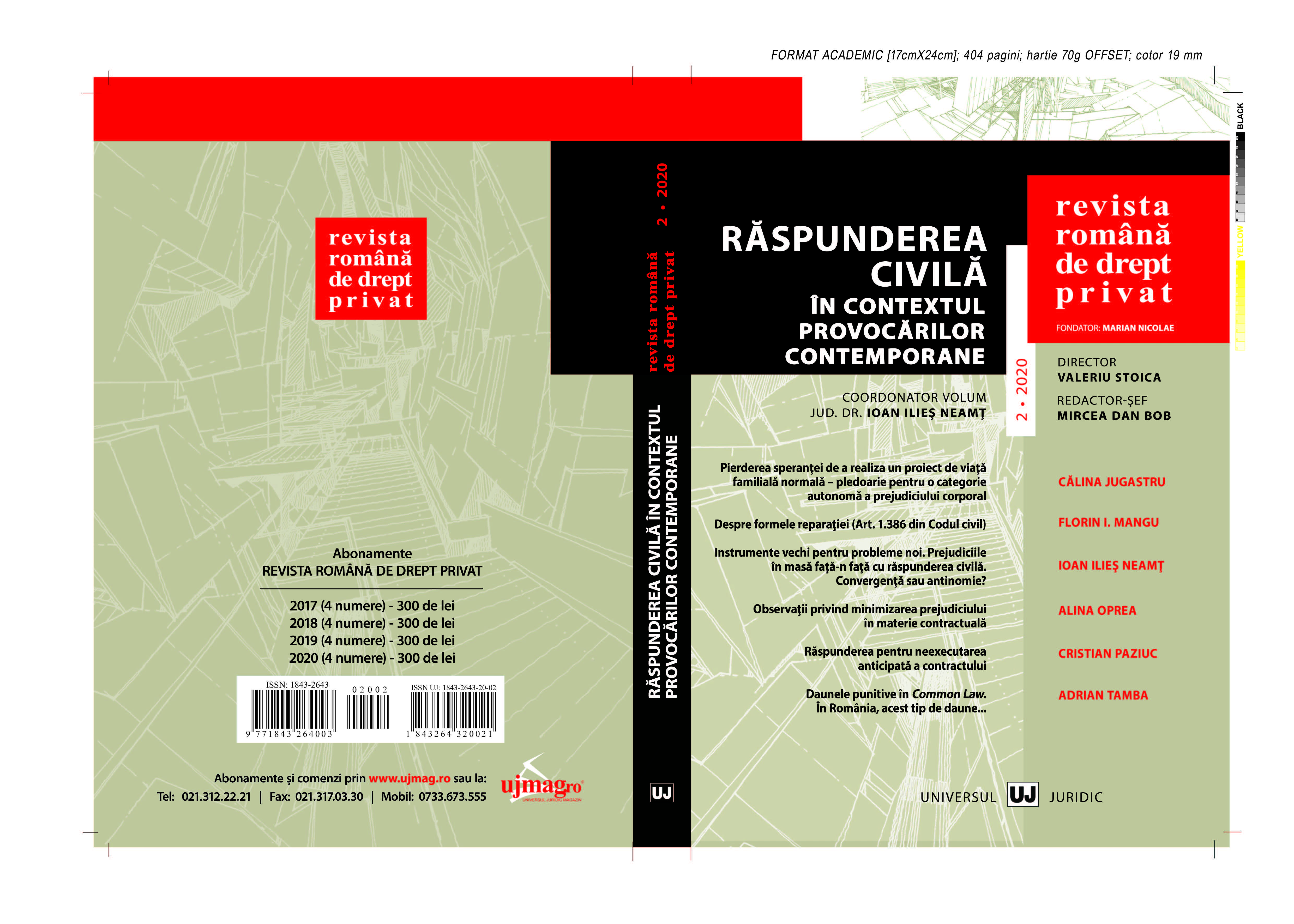Prescripţia extinctivă în procedura insolvenţei debitorului profesionist, precum şi în raporturile cu cei obligaţi alături sau pentru acesta
The extinctive prescription in the insolvency proceedings of the professional debtor, as well as in the relationships with the parties held accountable with or for it
Author(s): Marieta Avram, Cristian David SamoilăSubject(s): Law, Constitution, Jurisprudence, Civil Law
Published by: Universul Juridic
Keywords: insolvency; professional; limitation; suspension and interruption of limitation; joint debtors; third party guarantors; extension of the suspensive/inter¬ruptive effect of limitation;
Summary/Abstract: Unable to ignore the specific context of insolvency, which is a natural reality in the market economy, the legislator of the new Civil Code considered that it had to expressly provide for the interruptive effect of limitation by registering a claim in the insolvent debtor’s list of creditors. Indeed, such a legal rule must exist in a modern regulation, even if, even in the absence of an express rule (as it explicably happened during the period of application of the Decree no. 167/1958), by way of interpretation, the recognized solution was the same. But how to reconcile the Civil Code rules regarding the interruption of limitation by registering the claim in the list of creditors with the provisions of Law no. 85/2014 according to which the opening of the insolvency proceedings determines the suspension of the progress of limitation with regard to a claim for which the creditor will have to file the application for admission to the list of creditors? Starting from the reasons that justify the suspension, respectively the interruption of the limitation, we intend to clarify the meaning of the legal provisions of the Civil Code and of Law no. 85/2014, in order to show that, what might seem surprising or even contradictory at first glance, actually falls within the logical solutions, to the extent of a correct systematic interpretation of the legal texts. In relation to the fact that, most often, the rights of claim to be registered in the list of creditors also include claims with plurality of debtors jointly liable to the creditor and/or claims secured with collateral or guarantees established by third parties, the analysis of limitation must be extended to these persons as well, in order to show that the professional debtor’s insolvency also determines consequences with regard to those who have committed with or for them. Last but not least, with special regard to the mortgage established by a third party to guarantee the obligations undertaken by the professional debtor, it must be established whether, after closing the insolvency proceedings (judicial reorganization or bankruptcy) to which the professional debtor was subject, the creditor can still exercise its mortgage right on the property of the third party guarantor, considering the issue of the limitation of the claim, in relation to the mortgage guarantor, after the closing of the professional debtor’s insolvency. The non unitary and, unfortunately, in some case, wrong practice has determined us to allocate, in this study, a special analysis regarding the issue of survival of the mortgage in the case of time barred claims, as a legislative novelty of major importance brought by the 2009 Civil Code.
Journal: Revista Română de Drept Privat
- Issue Year: 2020
- Issue No: 02
- Page Range: 305-337
- Page Count: 33
- Language: Romanian
- Content File-PDF

